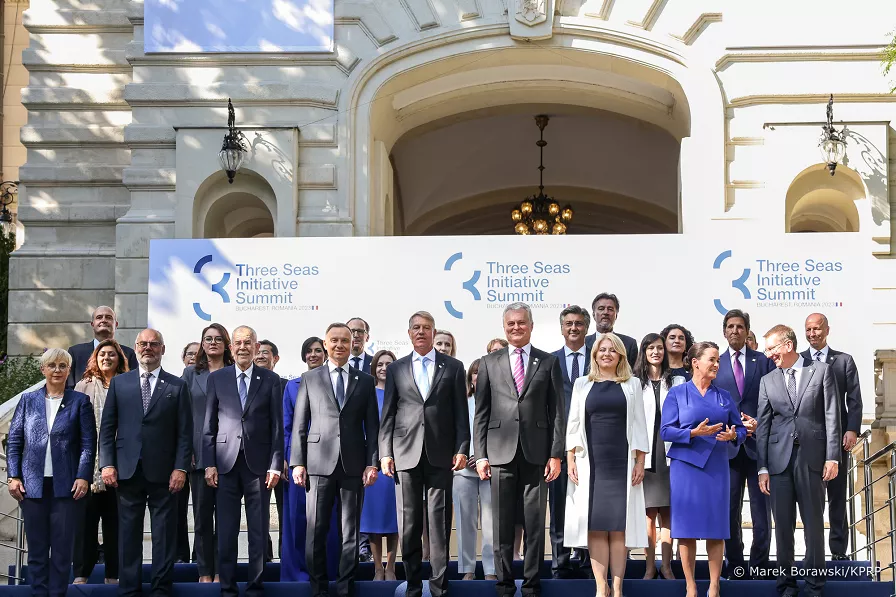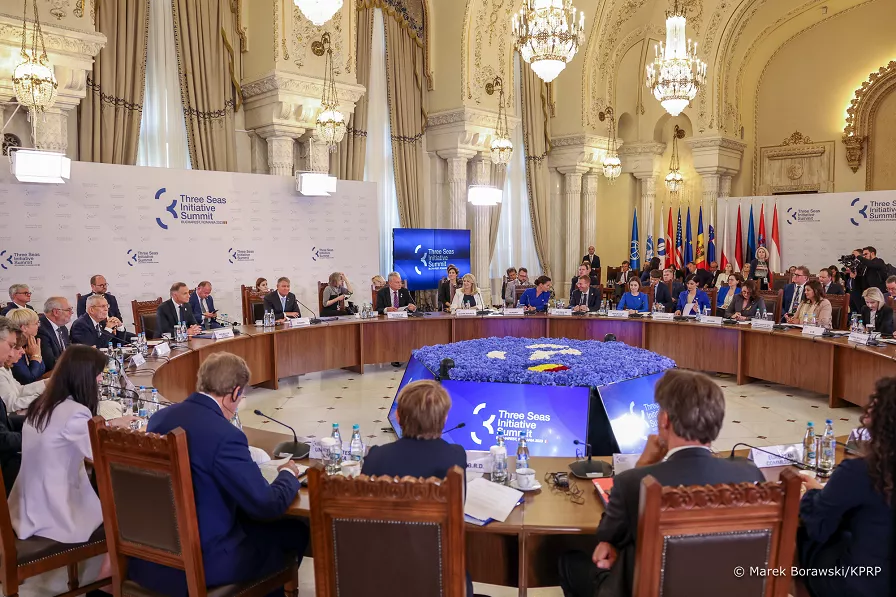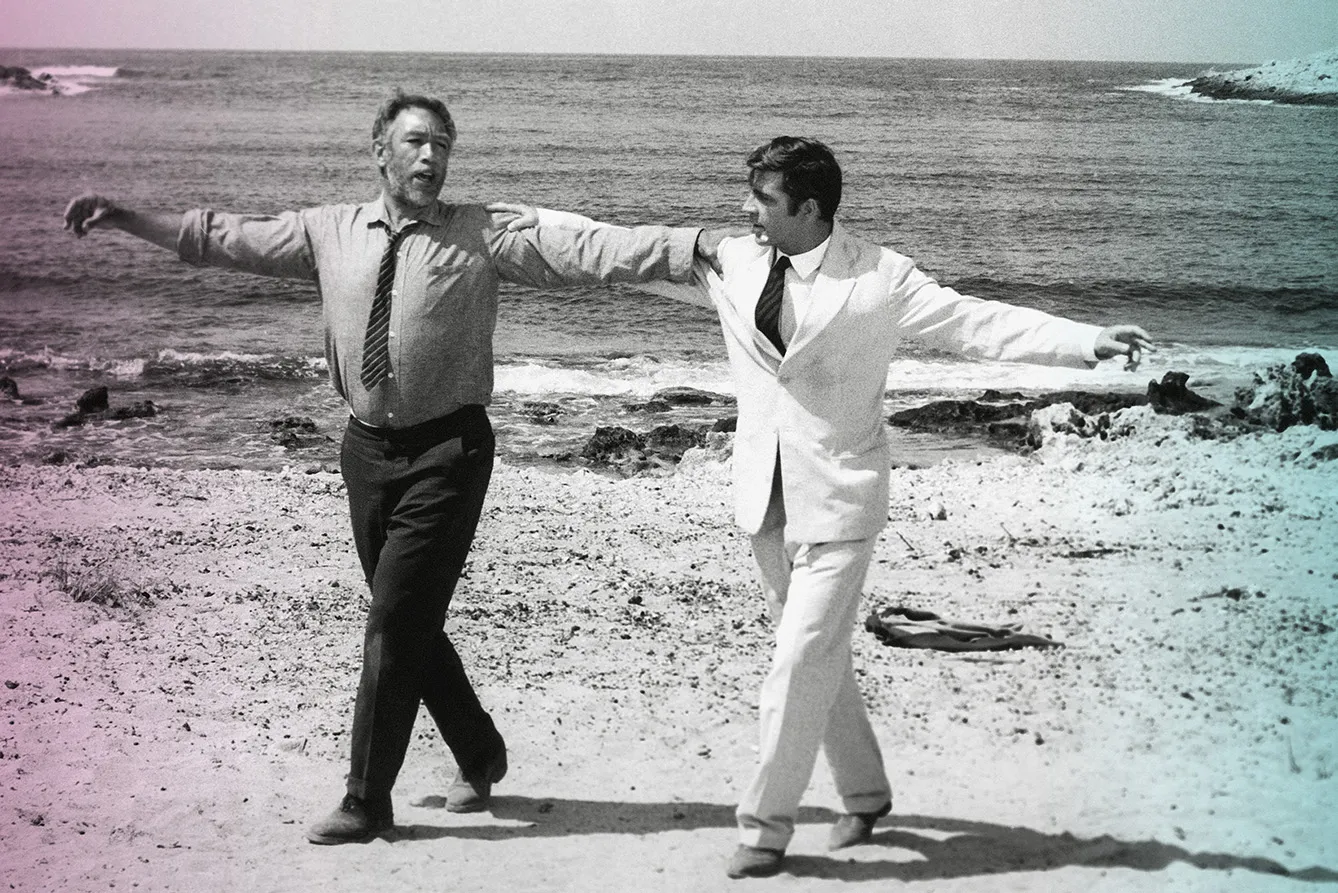“The full catastrophe,” says Zorba in the final scene of the famous film “Zorba the Greek” from 1964. Right now, it is a popular catchphrase describing different types of disasters, mainly in personal or family life. But it also became the metaphor of a Greek lifestyle full of optimism and carefreeness – so much so that not even a disaster could spoil them. After all, the Greek philosopher Heraclitus of Ephesus said in 500 BC, “Panta Rhei.” Aka, everything flows. And since everything is changing, it is natural that catastrophes happen from time to time; thus, instead of worrying about them, it’s better to look for the positive side of them.
A few years ago, this catchphrase took on a new and very current meaning – it was used frequently to describe the collapse of the Greek economy as a result of the 2008-2010 global financial crisis. Then Greece was on the verge of bankruptcy; there was no shortage of voices that it would cease to be a member of the eurozone and even the European Union. But today, it is a tune of the past. Athens is currently enjoying a strong economic boom, growing twice as fast as the average for eurozone countries. And they have just become a member of the Three Seas Initiative – strongly reinforcing this institution in the transportation, energy, and logistics dimensions. Their admission to the 3SI is a logical closure of a region bracketed by the three seas – the Baltic, Black, and Adriatic Seas.
Waiting for the window of opportunity
The decision to admit Greece to the Three Seas Initiative was made at the latest summit of its leaders, held in early September in the Romanian capital, Bucharest. This was not a surprise. Greece had already been granted associate status; full membership was a natural step forward. After all, “everything flows” – initiatives like the Three Seas are living organisms responding to changes in the environment. Therefore, it cannot be ruled out that Moldova and Ukraine, which have associate status, will one day join the 3SI structures.
How is it possible that Greece became a member of the 3SI at all? After all, it is not a former communist state that was in the direct orbit of the Soviet Union until 1989 like all (except Austria) countries in the initiative. Athens joined NATO as early as 1952 and has been a member of the EU since 1981. In this respect, Greece does not fit into the 3SI, formed mainly by countries that were once members of the Warsaw Pact and the Council for Mutual Economic Assistance (Comecon).
But one should also not look at international organizations through the glasses of a historian – a political, economic, and geographical perspective is much more important in such situations. And in the latter dimensions, Greece fits into the Three Seas Initiative in a big way. So much so, in fact, that it is rather worth asking why Athens has only now joined the institution that has been operating in Central Europe since 2016.
Turning ideas into opportunities
In politics with a capital “P,” goals are achieved when two circumstances converge at the same place and time. The first is an idea. The second is the window of opportunity that makes the realization of this idea possible. Various concepts for strengthening Central Europe were emerging even before World War II. One of them was coined by Tomáš Masaryk, the first president of Czechoslovakia, who proposed the creation of a sphere of close cooperation of small nations between Germany and Russia, including the Nordic states, Poland, Czechoslovakia, Hungary, Yugoslavia, as well as Albania, Bulgaria, Turkey, and Greece.


As we know, paper is patient – which is why Masaryk’s concept remained a theoretical proposal for decades. Until now. The emergence of the Three Seas Initiative has opened a window of opportunity to test those old concepts in practice, though without Greece at the beginning. Back in 2016, the initiative itself was fresh and unrooted. Meanwhile, Athens was in dire economic straits and in a deep existential crisis. Unemployment in the country was approaching 30 percent, the country’s debt was hitting record highs, and rating agencies were giving Greece “junk” ratings, meaning no one wanted to buy the country’s bonds. The situation was almost hopeless. It was certainly not the moment to co-found new international organizations.
The window of opportunity for this has only now appeared. Today, Greece has a high debt burden, above 150 percent of GDP, but has managed to reduce unemployment and regain solid economic growth sharply. The country has also become attractive to foreign investors. Recent parliamentary elections have shown that the political scene there has stabilized. In such a situation, thinking about something more – such as membership in the 3 SIs – is much more consistent with political reality.
Common heritage
“What a miracle life is and how alike are all souls when they send their roots down deep and meet and are one!” – to quote “Zorba the Greek” once again. When it comes to Greece, words about roots can be interpreted very literally – after all, this country is the cradle of civilization on the European continent. In this respect, the addition of Greece infuses a new layer of historical and cultural depth. But Athens also shares with the vast majority of the 3SI states a common experience of captivity. Greece was ruled by the Ottoman Empire for four centuries. A similar fate of foreign occupation has also befallen most of the countries in the region throughout history. In this sense, the historical heritage of the countries of the entire region is surprisingly similar.
Civilizational-historical similarities are always important because they facilitate mutual understanding – but neither is crucial in the Three Seas Initiative. What is most important in it is the joint development of infrastructure and the search for synergies in the economic field. In this respect, Greece complements the other countries in the region very well.
As a maritime country, it perfectly complements and develops intermodal transport opportunities in the region. Greek ports are reached by the “Orient – East Med Corridor” being built as part of the Trans-European Transport Network (TEN-T), a cross-border infrastructure development program developed by the EU. This land corridor goes from German ports in Hamburg and Rostock through countries being part of 3 SI (Czech Republic, Austria, Slovakia, Hungary, Romania, Bulgaria) to Greek ports in Piraeus and Patras and later – by sea – to Cyprus. One of the key links to ensure transport cohesion throughout the EU, including its outermost member states. It is intended that this corridor will provide both road and rail links – and lead to seaports in the north and south of the continent.
Making lasting connections
This is not the only EU-co-financed corridor that runs through Greece. In December 2022, Via Carpathia – the most important road for the entire Three Seas Initiative – was added to the TEN-T program. Its design was sketched out as early as 2006, but construction only really got underway ten years later. According to the plans, it should be finished by the end of the decade.
When ready, it will connect most of the Three Seas Initiative countries by high-speed expressway. In total, from Klaipeda in Lithuania to Thessaloniki in northern Greece, the road will be 3,000 km long. It is no coincidence that it is already referred to as the backbone of Central Europe. There are also plans for creating Rail Carpatia – a train connection through Central Europe. However, right now, it is only a melody of a distant future.
At the core of the Three Seas concept is the idea of smart connectivity – not only related to transport but also to the digital economy and the security of the supply of energy resources. Greece plays an important role in this respect as well. In this country, a submarine fiber-optic cable will be entering the Mediterranean to connect Europe and Asia via the Internet. The East to Med data Corridor should be completed by 2025. In the energy sector, too, Greece greatly enhances the security of the entire region. To the west of Athens, an LNG terminal has been in operation since 1999, enabling the supply of liquefied gas. Bulgaria has long declared its desire to join this terminal in order to gain the use of LNG.
Besides, according to the European Commission’s plans, The Southern Gas Corridor, which, if built, will connect Baku in Azerbaijan with Europe, and whose planned route passes through the 3 SI countries, runs through Greece. Although the construction of this project got bogged down, it is still included in EC documents. If there were the political will to unblock this project, Greece would become a key energy hub in Europe.
Becoming a member of the Three Seas Initiative, Greece also brings its own conditionalities to it. One of these is its close cooperation with China. Beijing has taken advantage of the weakening of Athens by the financial crisis and has begun to build its foothold in the EU in the country. It invested in the local infrastructure (it became, for example, a majority shareholder in the huge port of Piraeus), strengthened cultural ties (e.g., three Confucius Institutes were established), and saw Greece as an important partner in its Belt and Road Initiative. As Greece has become more and more stabilized economically, Chinese influence has begun to be curtailed (for example, Chinese companies were excluded from the tender for the expansion of the mobile network), but it is still strong in the country. This is also part of the “dowry” that Greece brings to the 3 SI.
Greece is certainly an added value for the Three Seas Initiative, although the still uncertain economic situation there and the turbulent political scene could also prove to be a source of trouble in the future. Also, Athens’ close cooperation with Beijing could be a problem in talks with the US about possible support for regional projects. It is no coincidence that Greece’s admission to the 3 SI took place with little fanfare.
But as Demosthenes, a Greek orator of the 4th century BC, once said, “Small opportunities are often the beginning of great enterprises.” This time, these opportunities are greater – the greater the chance that the joint venture between the 13 Three Seas Initiative countries will be a joint success.







